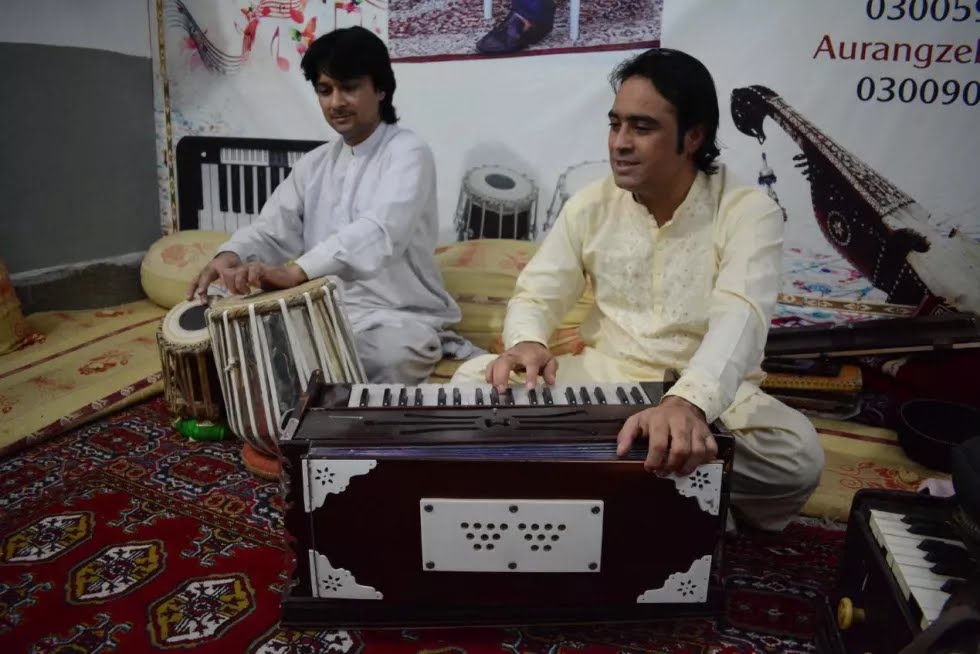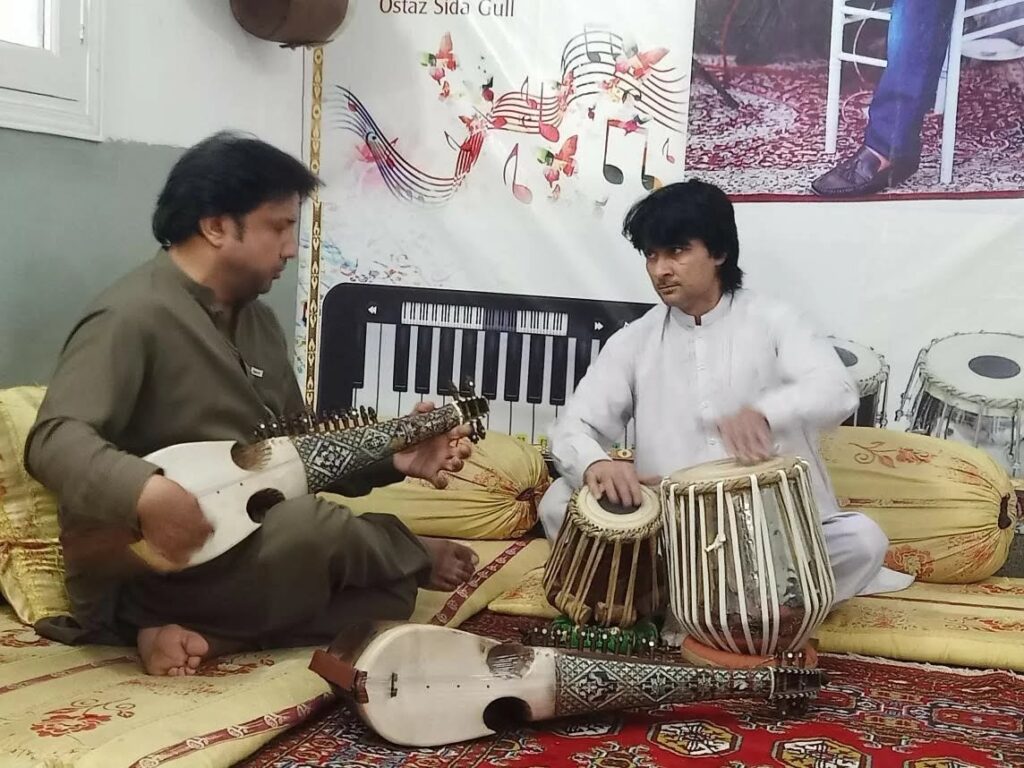In a modest apartment in Peshawar, Afghan musician, Zikrullah Wafadar, strums his rubab, a haunting melody filling the room. The 23-year-old musician fled Afghanistan in August 2021 when the Taliban stormed back to power and outlawed music.
For Zikrullah and hundreds like him, Afghan musicians face not just professional challenges but threats to their very existence. The Taliban’s harsh stance on music forced over 550 Afghan musicians, singers, and actors to flee their homeland, abandoning their lives for uncertain refuge in Pakistan. “It was not just a ban,” Zikrullah said, his voice trembling. “They came for us—arresting, beating, and threatening to kill.”Now in Peshawar, Zikrullah shares his cramped living space with five other Afghan musicians.
They live day-to-day, their instruments hidden like contraband, their lives caught between survival and nostalgia. “I cannot go back,” said Ayaz Gul, a veteran musician who fled after the Taliban destroyed his recording studio. “But here, we are not free either.”

A precarious refuge
The exodus of Afghan musicians has brought them to Pakistan, but their arrival has not been met with open arms.
Without legal documentation, many find themselves arrested or harassed. Rashid Khan, president of the Khyber Pakhtunkhwa Singers’ Association, says over 200 Afghan artists now live in Peshawar, their futures hanging in the balance. “These musicians came here to save their lives” Rashid said. “But they are being treated like criminals. The government must show compassion.”Rashid has taken their plight to court, demanding the release of detained Afghan musicians and assurances against forced deportation. “They have suffered enough. We cannot let them suffer more,” he said.
The Khyber Pakhtunkhwa police have defended their actions, stating that the arrests are based on immigration laws. A spokesperson clarified, “These individuals are living here without valid documents. Their cases will be decided by the court.”
Justice, but only just
A flicker of hope arrived on 10 January when the Peshawar High Court ruled against the forced deportation of Afghan musicians seeking asylum. Justice Waqar Ahmed’s decision directs the federal government to resolve their asylum applications within two months. Until then, law enforcement agencies have been instructed not to harass or deport them. The case, filed by Hashmatullah, an Afghan musician, highlights the precariousness of their situation. His lawyer, Mumtaz Ahmed, argued that international law forbids Pakistan from forcibly returning asylum seekers to a country where their lives are in danger. “This is not just about legalities,” Mumtaz said. “This is about humanity.” The court’s ruling has allowed Afghan musicians to register with the United Nations High Commissioner for Refugees (UNHCR). However, the federal government must also decide whether to grant them temporary residency if their asylum claims remain unresolved.
The weight of silence
For now, Afghan musicians in Peshawar wait — some in fear of arrest, others in hope of a new beginning. Zikrullah dreams of performing again, but his rubab stays silent most days. “The music is still inside me,” he said. “But it feels dangerous to let it out.” Rashid Khan continues to fight for them, urging the government to recognize their plight. “These artists are the keepers of a culture,” he said. ” If we let them disappear, we lose a piece of our shared humanity.”
But for Zikrullah, the future remains uncertain. He avoids crowded areas, afraid of being picked up by the police. At night, when the world quiets, he picks up his rubab and lets the music flow, if only for himself. “It feels like the only way I can still breathe,” he said.












